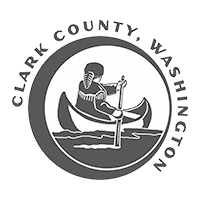Case Studies Original
A Case Study In Leading Strategic Change and Cultural Transformation.
 Clark County, Washington
Clark County, Washington
This case study will explore the 1½-year organizational-wide cultural change initiative within the Clark County Government workforce in the state of Washington. Clark County Government is home to over 1,600 employees and is the largest employer of Clark County in the state of Washington. This case study will describe it’s unique context, challenges, diagnosis, strategic approach, applied solutions, and business outcomes that we, at Leadership Alive®, Inc. designed, implemented, trained, and systematized for the leaders, directors, managers, teams and employees at Clark County Washington.”
Thanks for pointing us in the right direction, Chris! It was an absolute pleasure learning with you. We certainly appreciate all your insights and inspiration. –Ron Zito, Human Resources Manager
A Strategic Solution
Senior Mangement along with a Work Place Improvement Program Task Force (WIP) was assembled to research possible solutions to reverse this cultural deficiency of employee cynicism and trust erosion. Servant Leadership models were explored as a possible solution. A county-wide strategic solution was proposed by Christopher Meade, PhD and the WIP team. Starting at the top of the organizational, the Trusted Servant Leadership Model™ would be taught to senior leaders, directors and elected officials first. It would then cascade down to managers and supervisors. It would then be taught to team leads and high-impact individual contributors. Finally, a group of in-house facilitators would be, trained, empowered and released to scale the change initiative to the other 1,300 employees.
The Strategic Rollout Process
A total of 300+ leaders were trained in Leadership Alive’s Trusted Servant Leadership Model.™ Five cohorts of leaders (between 40-60 per group) were trained over six-weeks (five, 4-hour training sessions, once a week). The training would consist of content expertice, learning groups, breakout activities, homework, reflections, collegial relationship building, a forum compiling of best practices, and a system established to gather shared-insights. A customized Servant-Leadership curriculum was created and used. During this time, a Trusted Servant Leadership Alumni Group was formed internally to sustain and embed the change initiative into the organization.
Organizational Outcomes
Both qualitative and quantitative assessments and measurements were used to gather feedback data, conduct analysis and determine findings. These are some of the various outcomes from the change program we led.
- Better alignment in teams
- Departmental silos beginning to break down
- Increased trust forming among teams and managers
- Clearer tie-in for employees to the overarching mission and values of Clark County
- Deeper connection with the elected officials and senior leaders of the organization
- Increased resource sharing among managers, teams and departments
- Stronger collaboration in teams with perception of employee voice taken seriously
- Reviewed Workplace policies are now under review (e.g., job performance and review system, greater accountability to employees and supervisors)
- Reworked some policies and processes to bring greater accountability
- Improved overall morale
- Created employee feedback loops
- Increased overall employee engagement and employee satisfaction
Conclusion: Trending Upward
This leadership journey toward positive change allowed leadership and management colleagues to gather together, form trusted relationships, learn more about their strengths as leaders and about how to build a shared future together that exemplifies the timeless principles of Servant Leadership.
Becoming An Employer Of Choice
Employee moral has increased. Employee retention has been strengthened. Increased levels of employee engagement, productivity and job satisfaction were realized. Trust building and in some cases, re-building, multiplied. Legitimate employee and organizational needs were addressed. Emotional Intelligence among leadership was elevated.
Finally, the leadership handoff was made from Christopher Meade, PhD, and Leadership Alive®, Inc. to an in-house team of leaders, trainers, and facilitators. They are now in the process of scaling the Servant Leadership movement that has been catalyzed at Clark County to reach all divisions of the organization and helping them fulfill their mission to become the work place of choice in it’s region and beyond.
Press Releases
- Clark County Officials Hope To Boost Employee Morale – The Columbian
- Clark County’s Workplace Plan Moves Forward – The Columbian
